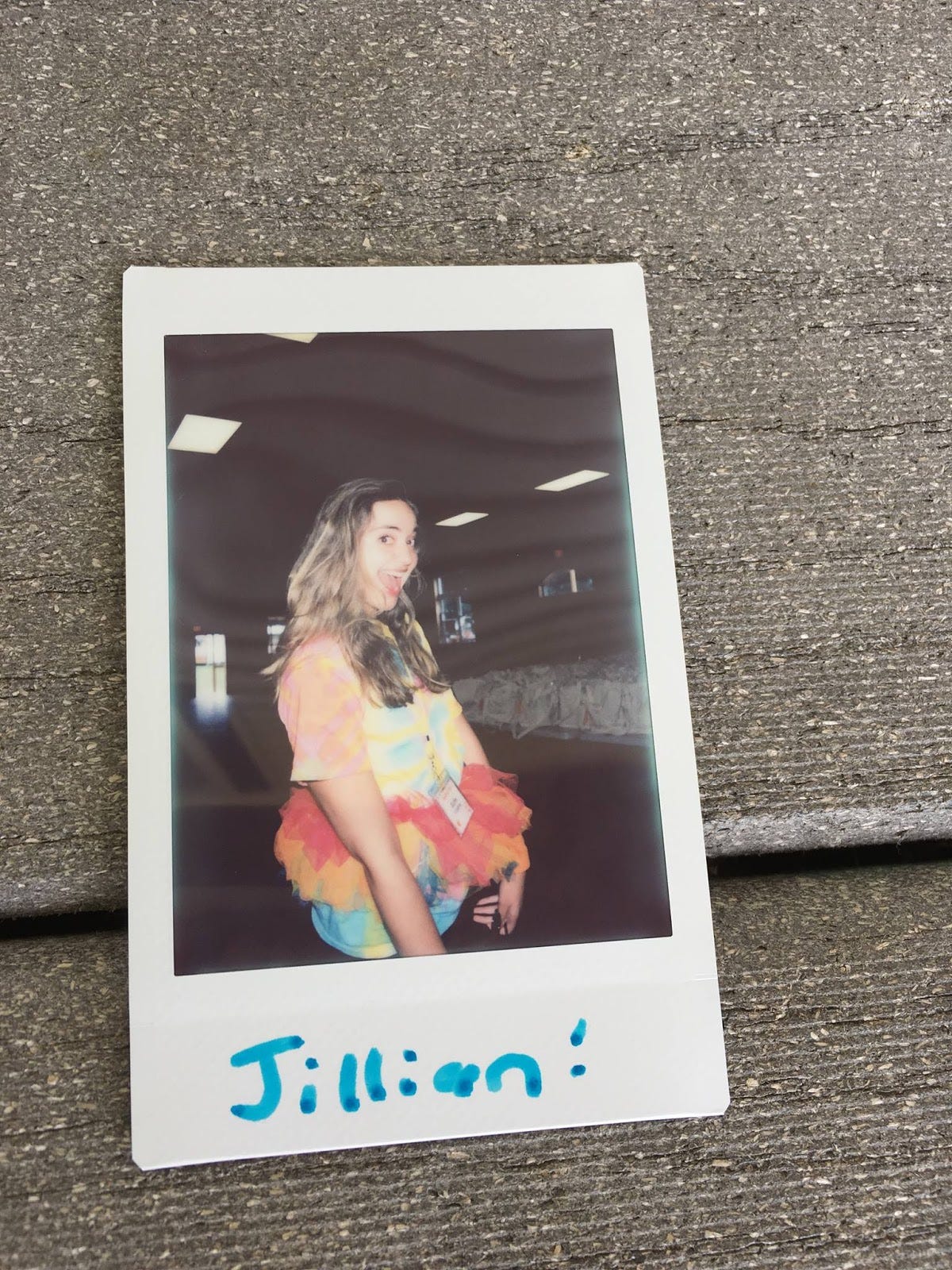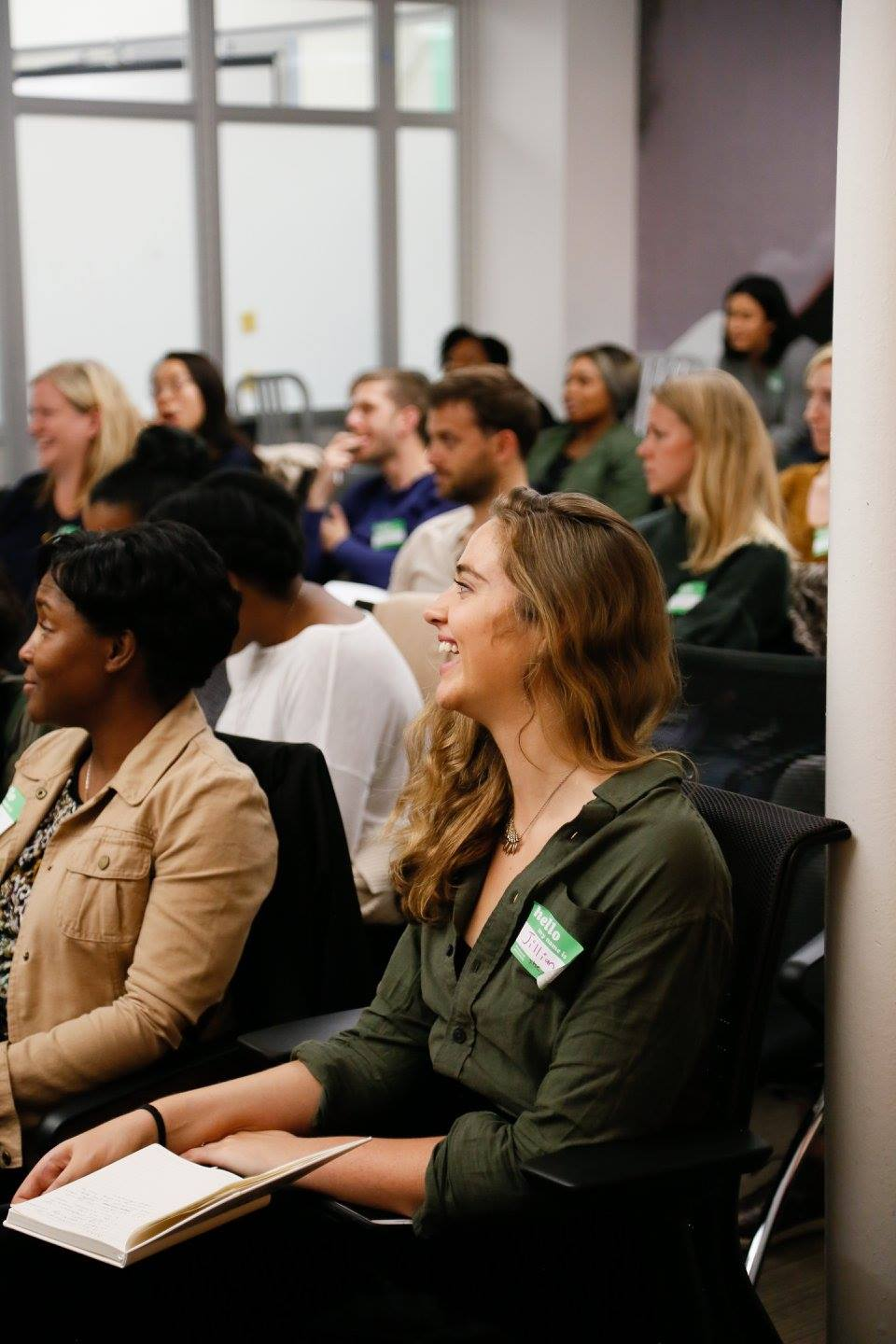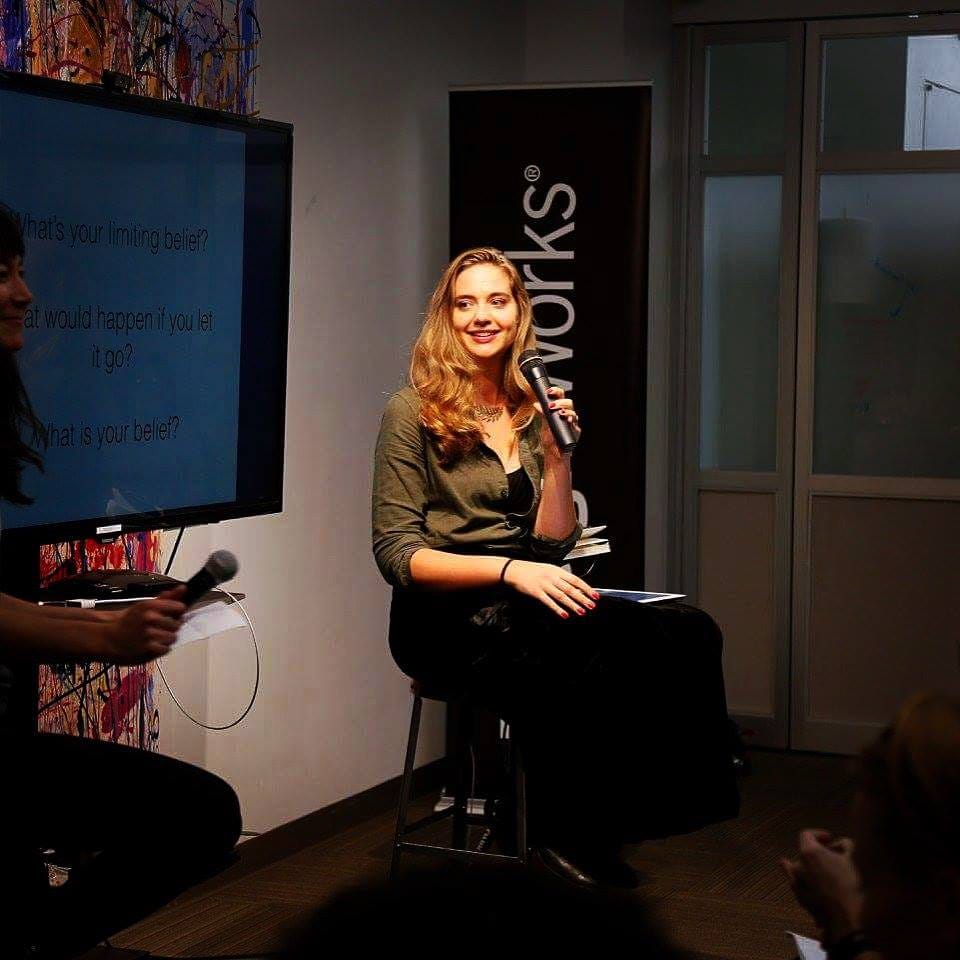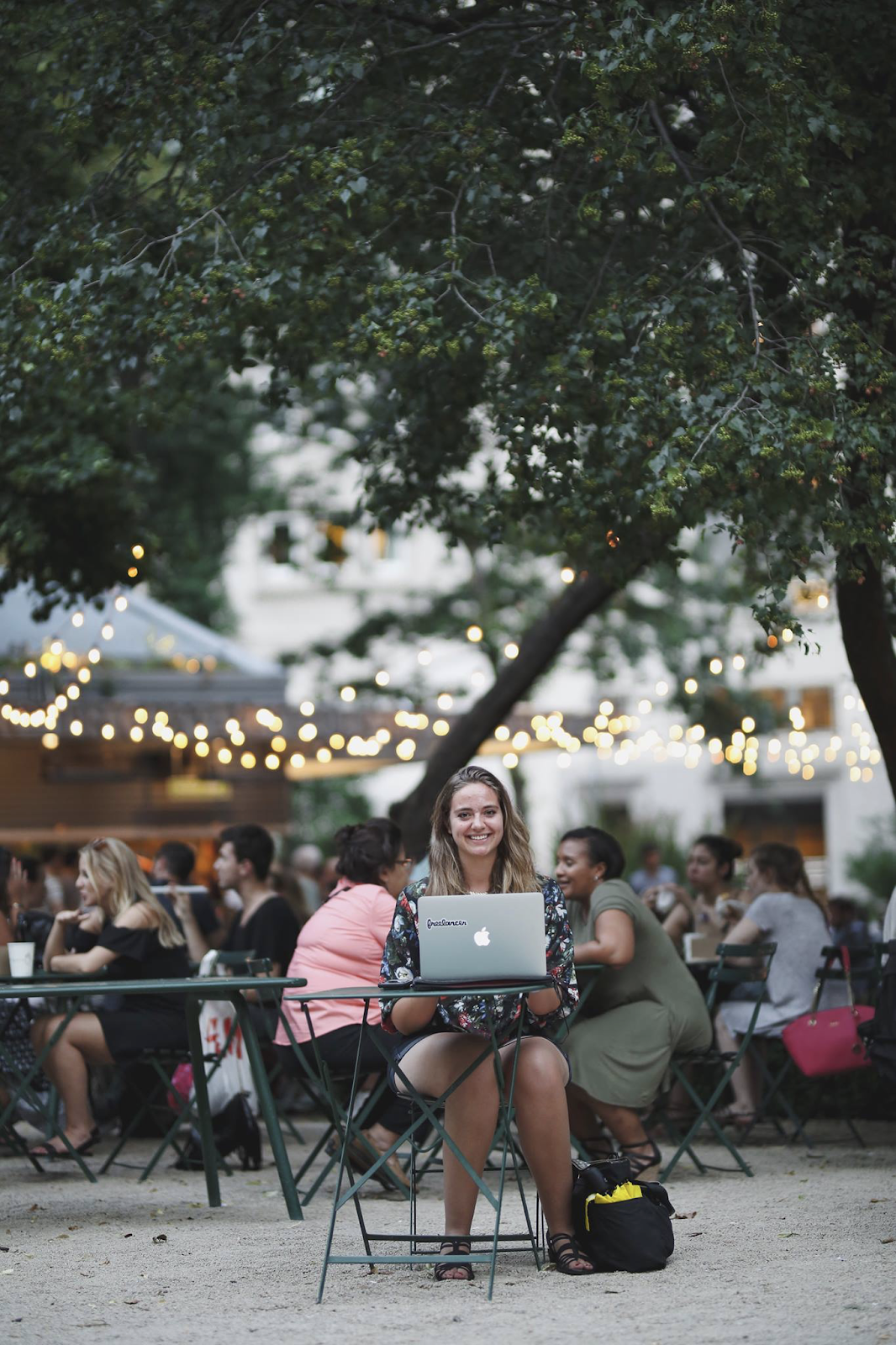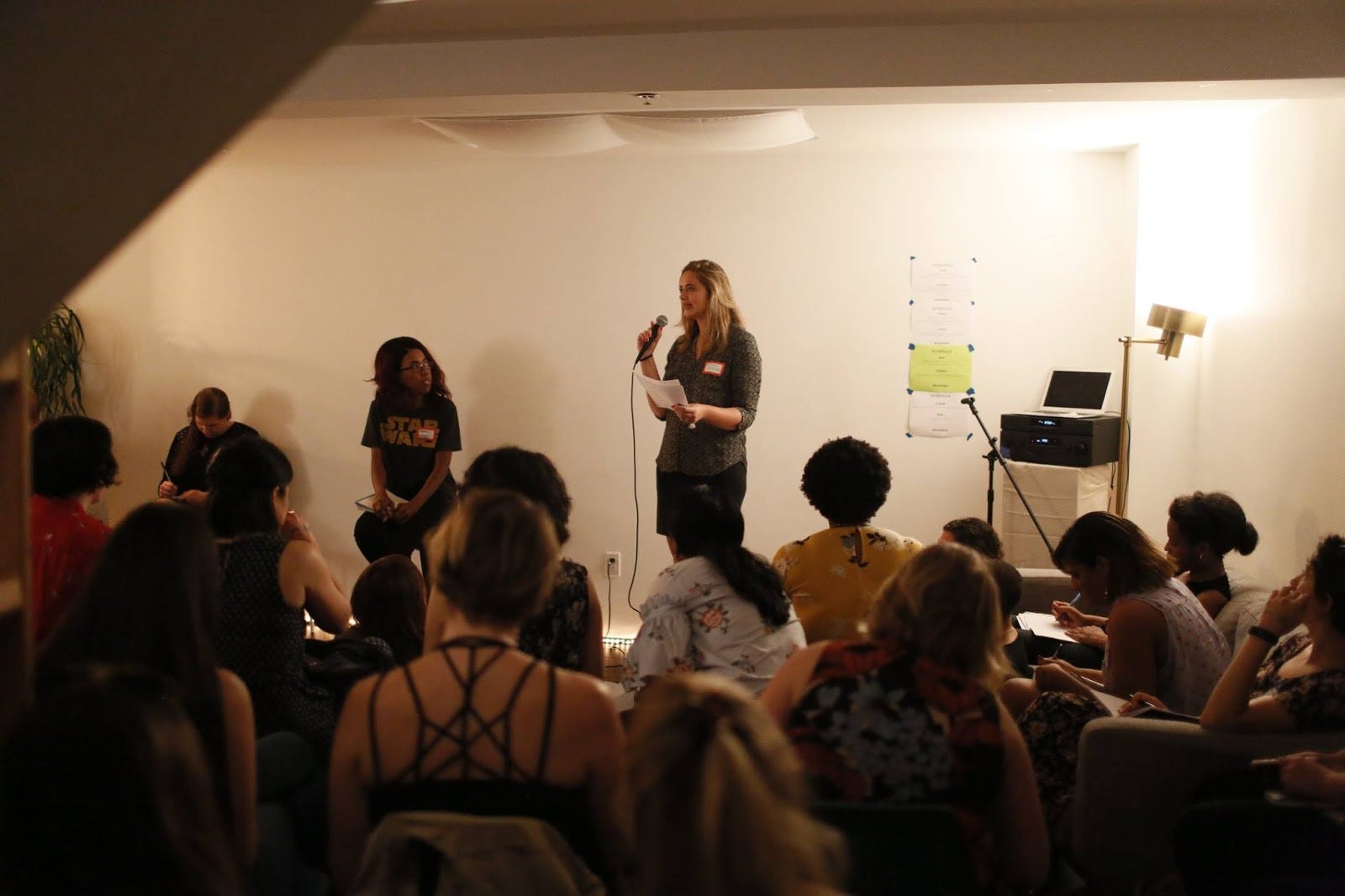There’s a certain set of lyrics that I think have defined our generation’s attitude toward career.
Yep, you guessed it: work, work, work, work, work.
We live in the era of the hustle. The grind. A workforce of always connected, hungry, work-hard-play-hard 20- and 30- somethings. We’re so obsessed with productivity that companies have started assigning “digital detox” days to employees, and people sign up for device-free wilderness retreats to get away from it all (because PTO just doesn’t cut it anymore). Arianna Huffington wrote an entire book about how the way we work can be unhealthy and uninspired. As a result,
professionals increasingly drop off of the corporate, 9-to-6 ladder to become self-employed or go freelance. It’s not necessarily an easier path, but it can offer the freedom, flexibility, and creativity that are dwindling in traditional workplaces.
Enter Jillian Richardson, who discovered the benefits of working for herself early in her career. Jillian is a freelance content producer and event designer who works with big brands without being tied to a cubicle. She’s also the founder of The Joy List, a weekly events newsletter for New Yorkers who are looking to connect meaningfully with others and find joy in the city. Featured events include unique experiences like a “Community Circling Night” and out-of-the-box dance parties like “Dance Lab: Human Instruments + Ecstatic Dance.” On top of that, she founded Hustle Fest, a conference for professionals looking to transition to freelance.
I chatted with Jillian about her trajectory, challenges, and how she manages to be a powerhouse freelancer, creative, and inspiration to newcomers through it all.
Breaking the mold
Raised in the affluent small town of Fairfield, Connecticut, Jillian was always aware of her privilege. Her high school was full of competitive star students striving to score top college acceptances, and having an executive headhunter for a father instilled an early focus on career in her mind.
“Working for myself never even entered my mind as a possibility,” she says looking back. “Recently, I’ve seen stats that show that the workforce will end up being 50% freelancers by 2020. But most schools aren’t addressing that with students.”
While attending Boston University, Jillian immersed herself in the school’s improv scene and worked as an intern at Contently. There, she gained experience creating content for a number of brands. “By the time I was 19, I’d already written about content strategy and the gig economy, and I had a sense of what rates I could get from clients. I had this rare confidence — I’d been told I was a good writer and I knew that I could get paid well,” she says. “That was one of my biggest strokes of luck. But, of course, I realized later it wasn’t always that easy.”
After graduating early, Jillian moved to New York to pursue her dream of becoming a comedy writer. She holed up in the East Village with a high school friend-turned-roommate.
“I didn’t know anyone else in the city and didn’t know anything about the professional comedy world,” she says of this time. “I also didn’t feel like the best version of myself when I was with comedy people. So I kept writing while applying for full-time jobs that I wasn’t getting — and realized I didn’t even want. I knew I’d probably have to grind for ten years before I would ‘make it’ in comedy. I was like, I’m too impatient for that. I want to make things now!”
Jillian’s trajectory changed after she stumbled upon a “summer camp for adults” called Camp Grounded. Attendees hid their real names, left their phones behind, and weren’t allowed to discuss work. This allowed everyone to be totally present and engaged. Afterward, Jillian maintained connections with people she’d met and realized a number of them were self-employed. “They seemed so happy to be controlling their paths and making their own lives. They weren’t waiting for people to give them permission to do things.”
From there, Jillian told herself she would spend one year freelancing full-time to see if she could make it work. She dove in, and by the end of that first year, Jillian found that other people were starting to come to her for advice about going freelance. “I realized how much I had already learned. Working for myself takes so much mental energy because I’m figuring out how to do it as I go. I’m making up a career, essentially. But I’ve become such an advocate for it.”
That realization compelled Jillian to found Hustle Fest. “No one is learning how to work for themselves, even in business school. But if I could do it at 24 years old, anyone can.”
The conference aims to provide support for newly minted, existing, and aspiring freelancers. Of this year’s event, “Hustle Fest: Full Time to Freelance,” Jillian explains, “It’s the event I wish I had when I was starting out. It’s for people who are thinking about working for themselves and want a daylong experience to dip their toe in and learn how to set goals, figure out how much money to save before making the leap, save for retirement, do taxes. All these things that I figured out as I went but wish I knew beforehand.”
But wait — it’s not all rainbows and butterflies!
Despite feeling liberated by freelance work, Jillian has encountered her fair share of challenges, from an overloaded schedule and burnout to a lack of mentorship. “It’s part of the learning process. When I get overwhelmed, I have to reevaluate how much I’ve taken on. There can be too many moving parts,” she says. “But I think that happens to everyone when they work for themselves. Being overly ambitious, and thinking sure, I can take all of this on.” As a result, she’s started setting clear boundaries and advising others to do the same.
Jillian realized that finding mentors would not be easy, particularly because she was building such a nontraditional career. “I didn’t meet many people who I could say, I want to be like you. I wasn’t only a writer or only an event designer. It’s a new type of career: working on multiple things, because just one isn’t realistic for long-term success. And also not as fun!”
When she scored an invite to attend a Female Founders luncheon at the Yale Club (run by She Thinks Purple), it hit her how much she’d needed to hear from other successful women.
“Female entrepreneurs talked about moments in their careers when they felt really vulnerable. They were all successful, but very soft. I felt this feminine energy in the room, and I started crying!” Jillian recounts. “I didn’t realize how hungry I was for this sort of mentorship. These were the kind of women I wanted to be like — powerful, making money, but also helping people and admitting when they’re struggling. In this world of hustling and always doing more and conquering your work, it’s very male driven. I didn’t see myself in that as much, of course, so I was like, ‘where my mentors at?!’”
To combat this, Jillian focused on creating a sense of community, and credits her success as a freelancer to that. “I’m so grateful to have people who I can talk to. I’m in this group called Personal Development Nerds. Its members are passionate about self-improvement, but equally interested in helping others,” she explains. “Even though I work for myself, I have friends who I could go to asking, ‘Hey, I’m struggling with this part of my business. Can I buy you lunch and get help?’ And I know everyone would be down to share ideas.”
Another obstacle for Jillian has been the amount of unpaid time she has to spend searching for gigs. To combat this, Jillian started carving out a niche for herself. “In general, my specialty is taking a complicated idea and making it simple and engaging, but that is still fairly broad,” she explains. “I recently started specializing in writing about cryptocurrency, because I realized companies are looking for women who can write about it. I put that out there and suddenly all of these new opportunities arose.”
When discussing passion versus money, Jillian explained her philosophy: “I’ve become comfortable saying that I have a part of my career that I’m not as passionate about, but is efficient. I spend less time on writing but make a living from it. That way I can spend more time on events. And I don’t have to worry about selling $200 tickets and still barely making rent.”
Newbies, take note
Most people are scared, rather than excited, by the idea of freelancing because of the amount of autonomy that comes with the territory. You’re held accountable for creating and meeting your own success metrics, deadlines, schedules and work loads. Jillian found that at first, setting goals was a daunting task that seemed too big to even approach.
“At the beginning of last year, I was unsure if I could actually work for myself. But this year I spent a good two weeks figuring out my 2018 goals, because now I feel like I can actually accomplish them,” she says.
For those struggling with goals, this might sound like way too much to handle, but Jillian’s strategy was to make goal-setting a social activity. “My roommates and I blocked off three hours, opened a bottle of wine, and set 20 minute timers for relationship goals, finance goals, adventure goals.” Having people in the room helped keep the process going and made it enjoyable. She also emphasized the importance of being fair to yourself when goal setting. “We all recognized that we’re not going to reach every one of our goals. If we do, they’re too easy.”
I mentioned how many people I know who feel chained to their corporate office cubicle but have never thought that freelancing could be an option. There seem to be misconceptions about the level of experience you need to freelance, how hard it is to break into, and how much you can achieve.
Her advice on getting started? “The side hustle thing is real. The stakes can be low — if you have a full time salary, you can experiment with something like applying for Fiverr Pro and putting up a gig to see what the interest is and how much money you could make.”
She thinks back on her experience freelance writing in college. By the time she graduated, she already had referral quotes and brand logos for her website, even though she’d been doing it all as a side gig. “No one will know you were doing it on the side, they’ll just assume it was part of your career.”
I countered with a common problem that people who work full time in demanding jobs encounter — there’s just no time! Her response: “Getting friends together and having a day of work sprints is something my friends and I do. One Sunday a month, we get together, do 30–45 minute work sprints, have lunch together, and just get our stuff done. You get to support each other, have fun and take breaks, but also prioritize work.”
One of Jillian’s main goals for the year is to focus on getting solid contracts that don’t require her to be onsite. Though she doesn’t consider herself a “digital nomad,” she found that she’s subconsciously setting herself up for that lifestyle. “It’s not so that I can go to Spain for two weeks while working, but just so I’m not constantly in that hungry mode of looking for new work,” she explains. “Even if you don’t want to do the whole digital nomad thing, act like you want to. It makes everything so much easier.”
Jillian continued to reiterate her emphasis on building community in order to achieve success. “I’ve surrounded myself with people who do what I want to do. When I moved to New York and started meeting freelancers or people who had successful side hustles, suddenly it was possible. Growing up, I didn’t know people who did that so I didn’t even think to. But now that’s my community, so I know I can do it. That was a total game changer.”
TFW New York City is your office
Having moved to the city as a freelancer, Jillian knew early on that she needed to live in a space that lent itself to hosting. She spends much of her time in her current East Williamsburg apartment, and is able to use that space as a coworking hub. She invites people over to work in her apartment or on her building’s rooftop.
On a typical weekday, Jillian spends the morning working at home and the afternoon elsewhere. She feels strongly about implementing a morning routine. “I realized that in times of stress, it can make such a difference. So I’ve been working on my perfect morning.”
She starts by making coffee and lemon water. Then — and she wholeheartedly admits this sounds a bit odd — she looks at herself in the mirror for five or ten minutes. “I eyegaze with myself. I light two candles in front of the mirror and just look at myself the way I would at another person, with kindness and compassion. Sometimes I talk!” She laughs. “Then I’ll write some thoughts down in my journal. It’s about acknowledging that I deserve a sacred space, and that the only person who will make that for myself is me.” After 20 minutes or so of journaling, she’ll do some stretching or meditation and work on a to-do list for the day. The goal is to avoid waking up and diving immediately into work — “that’s so not good for my brain!”
For the second half of the day, Jillian’s favorite spots include Freehold in Williamsburg — “There’s always space on weekdays, they have outlets and you can stay as long as you want”; TOMS cafe (yes, the shoe store) in Nolita — “It almost feels like a little summer camp in there. They have a firepit, beautiful lights and seats with pretty cushions”; and Jivamuktea Cafe in Union Square — “It’s a yoga studio and coffee shop. It’s good vibes.” Insert prayer hands emoji.
Next up…
Looking ahead, Jillian is excited to grow The Joy List, the project she’s most passionate about (“I created what I wish I’d had when I first moved here”). In addition to continuing to spread the word and growing its subscriber base, she hopes to produce events specifically for The Joy List and expand to cities beyond NYC. The ultimate goal is to reduce loneliness, which in today’s world is needed just about everywhere. Insider tip: now is a great time to sign up for the newsletter as they’ve started to put out more event ticket giveaways and sweeps!
In the more immediate future, “Hustle Fest: From Full Time to Freelance” is coming up on April 14th at Rise, a coworking office in Flatiron. One of the many perks will be access to a marketplace of freelance coaches; guests will be able to book 1:1 sessions with them to dive into specific questions about transitioning to freelance.
To snag a discounted ticket, use our promo code: NOOKLYNHUSTLE15
Jillian’s final words of advice for anyone looking to go off the beaten path struck a chord with me: “It seems obvious, but I put a lot of energy into finding my people. In a place like New York, where you can feel really isolated and lonely, it’s so worthwhile for mental health, happiness, and career development. I went to so many events by myself and did so many things that were really out of my comfort zone, but now I’ve found my humans. And I keep adding to the tribe.”
Let us know what you think of Nooklyn Stories by tweeting us @nooklyn, reaching out on Facebook, or finding us on Instagram @nooklyn.stories!
Photo Credits: 1) Jelena Aleksich 2) Danny Ospina 3) Image Courtesy of Jillian Richardson 4-5) Bridget Badore 6) Justin Aharoni 7) Melissa Wong of New Women Space

